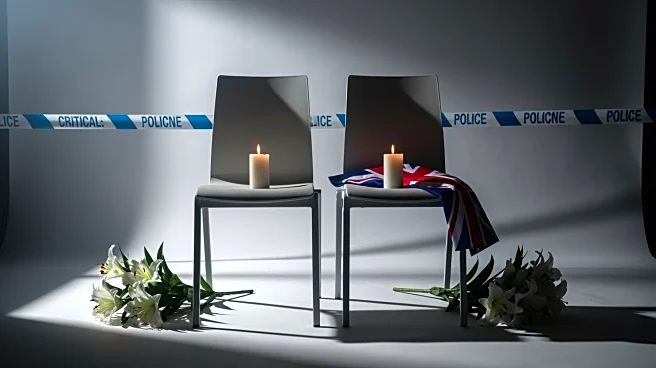What's Happening?
Omer Neutra, an American Israeli from New York state, was one of two hostages killed by Hamas. His parents are currently waiting for the return of his body. The situation highlights the ongoing conflict
and the challenges faced by families of hostages in securing the return of their loved ones' remains. The incident underscores the complexities involved in hostage situations and the emotional toll on families affected by such tragedies.
Why It's Important?
The delay in returning the bodies of hostages killed by Hamas has significant implications for international relations and humanitarian efforts. It raises concerns about the treatment of hostages and the diplomatic challenges in negotiating their return. The situation affects U.S.-Israel relations and highlights the need for effective international policies to address hostage crises. Families of hostages face prolonged grief and uncertainty, impacting their mental health and well-being.
What's Next?
Efforts to secure the return of the hostages' bodies are likely to continue, involving diplomatic negotiations and potential interventions by international organizations. The U.S. government may engage in discussions with Israeli authorities and other stakeholders to expedite the process. The situation could lead to increased pressure on Hamas to comply with international humanitarian standards and facilitate the return of hostages' remains.
Beyond the Headlines
The incident raises ethical questions about the treatment of hostages and the responsibilities of militant groups in conflict situations. It may prompt discussions on international laws governing hostage situations and the rights of families to recover their loved ones' remains. The emotional impact on families and communities affected by such tragedies could lead to increased advocacy for stronger international policies and support systems.











